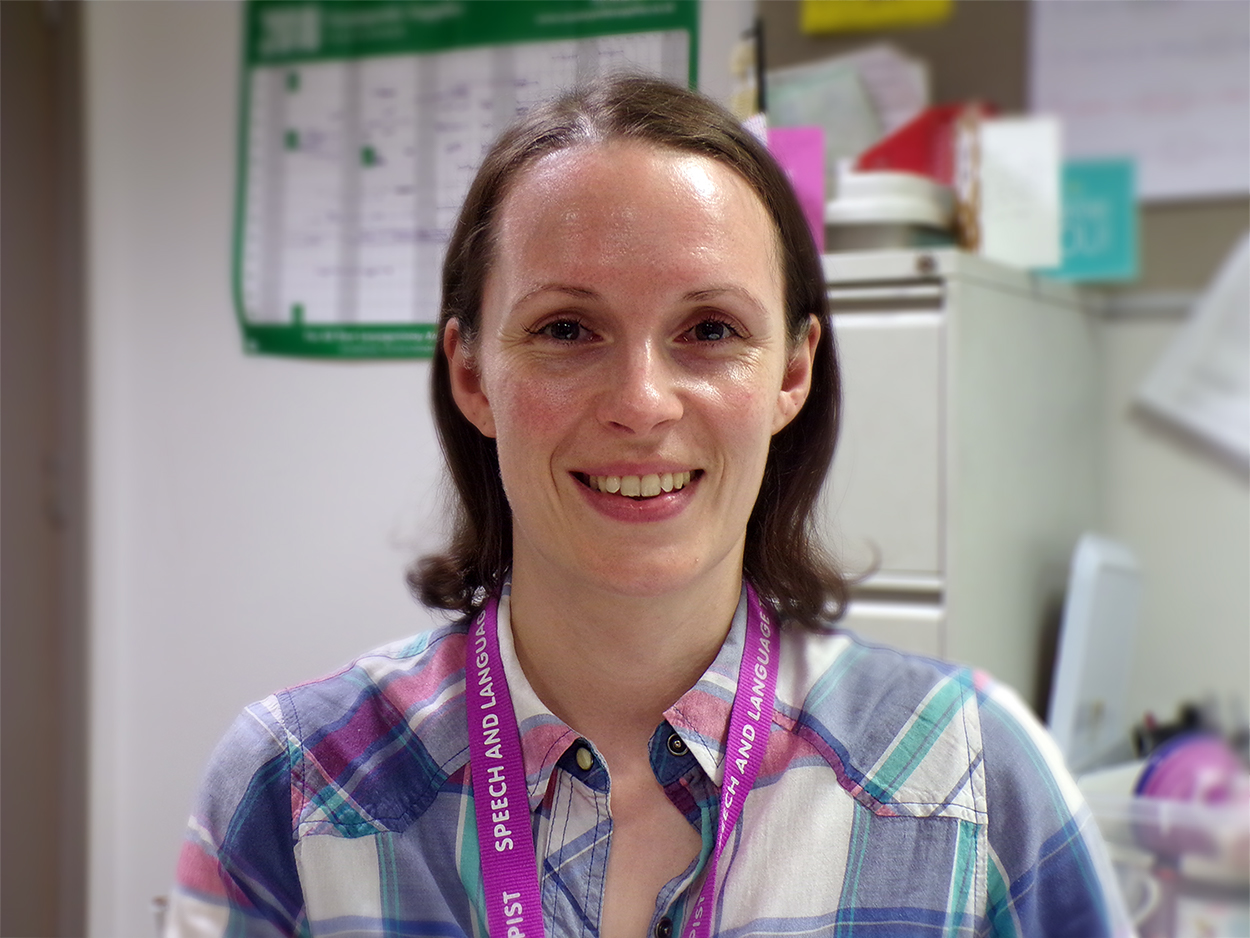Giving a voice to trans people

Your voice is an integral part of your identity. For some trans and gender diverse people, however, their voice is a source of continuous distress. Every time they speak, they risk being mis-gendered or even harassed. With the support of Barts Charity, staff at Barts Health have increased support for transgender patients.
Freya Sparks is the clinical lead speech and language therapist for head, neck and voice. She works closely with trans people who may lack confidence with their voice or how they are perceived by society. It’s Freya’s goal to help them feel comfortable and provide them with additional support.
For some trans people, changing their voice to better align with their identity can be really important. It can relieve feelings of gender dysphoria (distress caused by the sex or gender assigned to them at birth not matching their gender identity) and reduce the likelihood of transphobia. According to Freya, trans people can be reluctant to call people on the phone, as the person on the other end might accidently misgender them based on their voice. Fear of prejudice or gender dysphoria can lead to some trans people withdrawing from society.
“Every year, we see more trans and gender-diverse people using our services,” says Freya, “I quickly realised that this was an area with a training need.”
In July last year she attended a two-day course funded by Barts Charity at the Tavistock and Portman GIC (Gender and Identity Clinic) in London. The course enabled her to learn more about the trans community, and how clinicians can work across multidisciplinary teams to understand the different pathways and care plans for trans people.
Freya said: “I wanted to find out what could be the best way forward and what other approaches we could use when working with trans patients. As health professionals it’s important that we are aware of the current debate, and that the service we are providing is equitable without unconscious bias.”
“Meeting a lot of trans people in a different context rather than a therapeutic setting was so beneficial. I was able to ask questions freely and find out how we could improve our service.”
This learning has been filtered down within the speech and language therapies team that work across Barts Health, and it’s important that multidisciplinary teams collaborate to help trans people reach their goals. They may have additional treatment such as surgery or psychological support, so the speech and language team take this into consideration.
“Trans and gender diverse people may have a lot of different pathways of care, which may involve a lot of additional support from doctors, surgeons and mental health experts. Speech therapy obviously focuses on the voice, but we look at working on other aspects of communication such as body language and how to instil confidence when using gestures. There’s a wide range of people that need to be involved in that person’s care and we all need to be working closely together in order to reach the same end point.”
Freya’s speech therapy sessions with trans people start with a discussion around their vocal concerns and how this may impact them in different situations within their home or working life. The first sessions focus on goal setting, and making sure that they understand what they are working towards.
“Voice therapy then focuses on how we can get the voice to do what they want so this can be done through vocal exercises, working on their posture, working on breathing techniques or articulation. When working with trans people we also work on the use of gesture and body language to support the person identify with their voice. Once these techniques are mastered, we then help in building on these techniques so they can adapt to their environment.”
The speech and language therapy team have received positive feedback from our trans and gender diverse service users. They have praised the team for instilling confidence and providing them with skills to help them feel comfortable and feel like their authentic self.
“It’s always nice to hear when a patient says that they’ve used what they’ve learnt in therapy sessions. This could be as simple as someone ordering a drink at a bar while feeling more comfortable about their voice, or approaching a situation that they once feared with confidence. Getting feedback about a positive experience is the most meaningful thing to me.”
Barts Health is proud to provide a speech and language therapy service that supports trans and gender diverse people within the local community to feel comfortable with their identity and find their voice.
